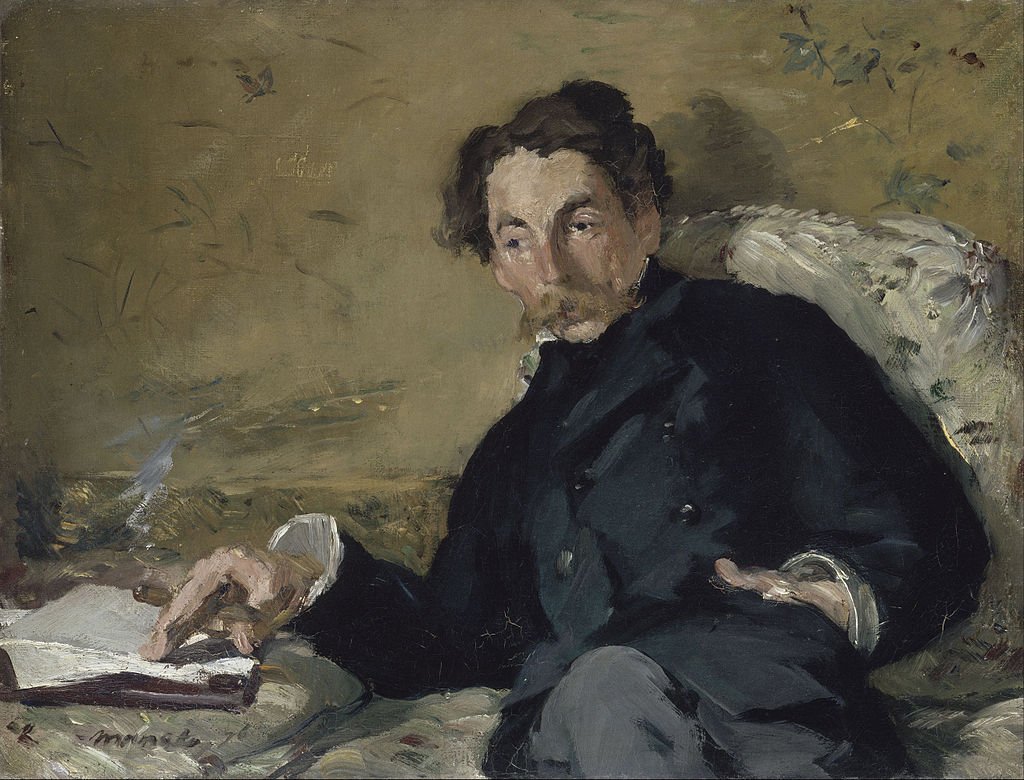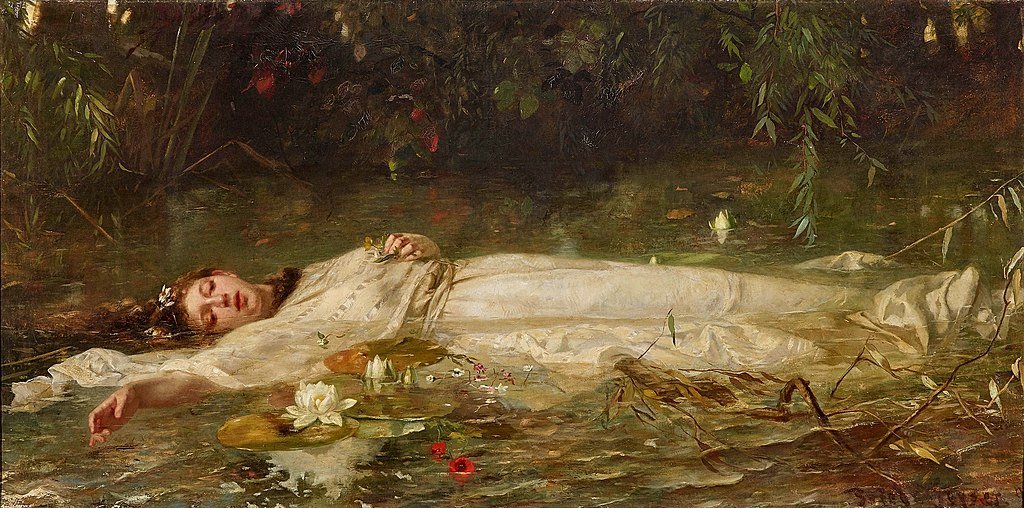The philosophy of beauty
"She walks in beauty, like the night of cloudless climes and starry skies; and all that’s best of dark and bright meet in her aspect and her eyes" — Lord Byron, She Walks in Beauty
Nowadays, most people don’t attach a larger significance to beauty. At most, beauty is a quality that evokes pleasure—something (or someone) is nice to look at or listen to. It carries no deeper meaning.
But from a philosophical standpoint, beauty was once thought of as a value to strive for—equal in weight to truth or goodness. In fact, beauty has an entire branch of philosophy devoted to it (alongside art and taste): aesthetics. To the ancient Greeks through to the people in medieval times and the Renaissance, beauty carried a moral importance. To pursue beauty was to be virtuous.
When we evaluate beauty from an aesthetic perspective, Western philosophers have taken two primary stances: the objective view and the subjective view. The former was propelled by philosophers like Plato and Aristotle, while the latter was debated by more modern ones like David Hume and Immanuel Kant.
These two theories form the basis of all subsequent notions of beauty. Is our modern conception of beauty too casual?
The objective view: Plato’s Symposium
Plato (427-347 BCE) discusses beauty mainly in his works The Symposium and Phaedrus. It’s important to note that he’s not really talking about beauty in the sense of physical appearance. For example, he says in The Symposium, “The beauty of the mind is more honourable than the beauty of the outward form.”
Instead, physical appearance is just a means to an end, a way to contemplate the ultimate “Form” of beauty—which is an intangible concept and higher value (like truth or goodness). And a physical object is only beautiful to the extent it reflects the Form of beauty.
“But what if man had eyes to see the true beauty—the divine beauty, I mean, pure and clear and unalloyed, not clogged with the pollutions of mortality and all the colours and vanities of human life—thither looking, and holding converse with the true beauty simple and divine?” — Plato, The Symposium
The key point with Plato’s view of beauty is that all beautiful things share the same, universal—or objective—traits. That’s why things like science, laws, and institutions can be beautiful too:
“Soon he will of himself perceive that the beauty of one form is akin to the beauty of another; and then if beauty of form in general is his pursuit, how foolish would he be not to recognize that the beauty in every form is and the same!” — from Plato’s Symposium
So, what are the universal traits of beauty? According to Plato, they include harmony, order, and alignment with the divine, whereas ugliness is associated with chaos and pain. And by contemplating physical beauty, you can contemplate its ultimate Form, which is divinity. Doing so purifies the soul:
“The divine is beauty, wisdom, goodness, and the like; and by these the wing of the soul is nourished, and grows apace” — from Plato’s Phaedrus
But this is all abstract, what does the objective view actually look like in practice?
What does the objective view mean in practice?
The objective view of beauty focuses on the features of an object. It must have qualities like definite proportions and relations among parts, symmetry, harmony, and order. For example, Aristotle (384 - 322 BCE) says in his work Metaphysics: “The main species of beauty are orderly arrangement, proportion, and definiteness.”
If you follow these qualities, you're indisputably exhibiting beauty. But this idea seems flawed for several reasons. Let’s take an example. If you have three different paintings that are all perfectly proportionate and equally exhibit definite portions, symmetry, harmony, and order, which is the most beautiful?
It seems unlikely they're just as appealing to every observer, which would mean that there's another quality needed to assess beauty.
The objective theory also contends that beauty evokes pleasure. For example the philosopher Plotinus (204-270 CE) says:
“This is the spirit that Beauty must ever induce: wonderment and a delicious trouble, longing and love and a trembling that is all delight," — from Plotinus’ Ennead
It seems unrealistic that defined angles and lines set in perfect proportions can create such a profound response. And here it's important not to assume that if an object evokes pleasure, it must be beautiful:
If A (an object is beautiful) —> B (the individual experiences pleasure), does not mean if B (the individual experiences pleasure) —> A (an object is beautiful).
Thus, under the objective view beauty is not determined by an individual's response to it (it's actually independent of the individual and his senses). His response is a mere by-product.
The subjective view: Hume’s Of the Standard of Taste
As a stark contrast to the objective view, the subjective view asserts that there are no universal characteristics of beauty because each person judges it differently. This idea aligns with the widely recognized phrase, “beauty is in the eye of the beholder.” Some of the main proponents of the subject view include David Hume, Immanuel Kant, and Edmund Burke.
According to Hume (1711-1776), beauty is shaped by individual perception and varies widely. He explains:
“Beauty is no quality in things themselves: It exists merely in the mind which contemplates them; and each mind perceives a different beauty. One person may even perceive deformity, where another is sensible of beauty; and every individual ought to acquiesce in his own sentiment, without pretending to regulate those of others.” — from David Hume’s Of the Standard of Taste
The response of the observer determines whether an object is beautiful: if A (the individual experiences pleasure), —> B (an object is beautiful).
However, the subjective view also seems flawed because it removes all meaning from the concept of beauty. If beauty is entirely subjective, it can't have a universal meaning.
For beauty to exist as a concept, it must have features that are independent of individual observers. And it's too broad to say that pleasure is the determinant of beauty. I could eat a bowl of ice cream and feel pleasure, but this doesn't mean I think the ice cream's beautiful—maybe I was just hungry.
***
For a brief interlude…check out these articles for more insights + subscribe to my newsletter:
Kant’s refinement of the subjective view: disinterested judgment
The German philosopher Immanuel Kant (1724 - 1804) refines the subjective view by introducing the concept of disinterested judgement, which argues that for a judgment to be valid, it must be free from personal bias, self-interest, or practical concerns.
In other words, the reason a person believes something is beautiful can't be tied to their experiences, desires, or interests (all of which would prejudice them). He says:
“The judgement of taste is therefore not a judgement of cognition, and is consequently not logical but aesthetical, by which we understand that whose determining ground can be46 no other than subjective… The beautiful pleases immediately… It pleases apart from any interest.” — from Immanuel Kant’s Critique of Judgment
To determine if something is truly beautiful, Kant essentially proposes a series of tests. For example, ask yourself:
Do I think this is beautiful because it reminds me of something personal?
Do I think this is beautiful because I have a selfish interest in it? E.g. Do I admire this painting because I’m thinking about how much I could sell it for?
Do I think this is beautiful solely because it serves its purpose well? E.g. Am I praising this painting solely because it accurately depicts its subject?
An object can only be considered beautiful if it’s appreciated for its own sake, independent of personal associations. Kant's notion of beauty and disinterested judgment places beauty as subjective yet universally valid. This means that while beauty arises from individual perception, the judgment of beauty carries an expectation of universal agreement because it’s grounded in shared human faculties.
But it seems impossible to define a concept like beauty without identifying universal features that apply to it.
Is a mix of objective and subjective more accurate?
There are some things in life that are undeniably beautiful, like sunsets or the night sky. These are phenomena that both exhibit and create beauty. They're physically appealing but they're also beautiful because they reflect nature, creation, and reality.
Physical beauty is fleeting (here, the sun will rise, diminishing the sunset and the night sky), but what it represents or allows us to contemplate is essential: the nature of the world and reality. In this sense, physical beauty is just a means to an end—a mechanism for understanding higher concepts like, truth, reality, or even the divine.
In this context, it doesn't seem correct to say that beauty is superficial or that it does nothing more than evoke pleasure. The objective notion of beauty seems to hold weight here, as beauty serves as a vessel for contemplating something greater than itself.
At the same time, the subjective view appears to offer its own validity. Just because there's no universal agreement on what's beautiful, or that the only common feature is evoking pleasure, doesn't mean that beauty lacks meaning.
It doesn't matter if each of us perceives beauty differently, what matters is that we can recognize beauty—and use it as a window for deeper contemplation.
A mix of both objective and subjective features seems like the most compelling understanding of beauty. While there are some universal qualities that make an object beautiful, beauty is also shaped by an individual's unique perception.
Which perspective of beauty do you think is most compelling? Share your thoughts in the comments below!












